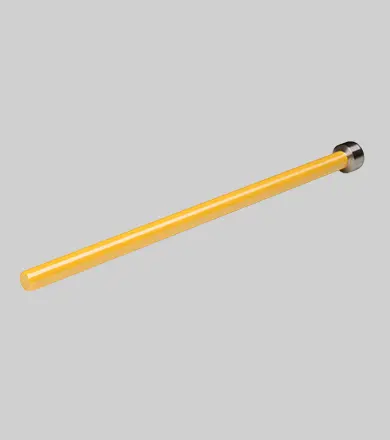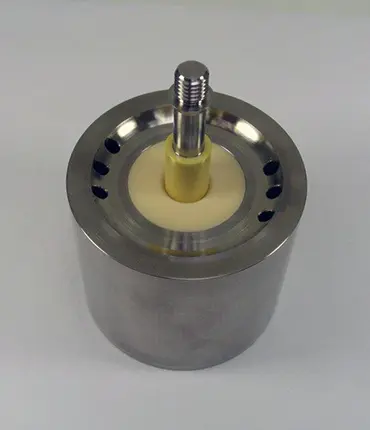Whether used as homogenizers for the food and cosmetics industries or as plungers for conveying liquid media at high pressure - Kyocera's high-performance plungers made of high-strength ceramics impress with their special qualities and can be used as alternatives to tungsten carbide.
Kyocera's oxide ceramic materials, such as FZT, FZM, and F99.7, exhibit chemical inertness, making them suitable for use in contact with food products. These ceramic pistons are also FDA-approved and certified as USP Class VI compliant.
Experience the multitude of advantages offered by Kyocera's ceramic high-performance pistons across a diverse array of applications, including:
- High wear resistance
- A long service life of more than 4,000 hours at 3,000 bar
- Lighter weight compared to carbide pistons
- Low frictional heat generation
- Optimum sliding properties (Ra < 0.05 μm)
- Pressure resistance up to 10,000 bar
Users can employ these pistons with confidence, even in highly regulated industries such as food, pharmaceuticals, and chemicals.
The pistons and ceramic plungers can also be easily combined with metals with a sterile joint guarantee. Simultaneously, the high surface quality of Kyocera's materials ensures minimal adhesion of flow products at all times.
Applications of Ceramic Pistons
The pistons and plungers are utilized in desalination and water-cutting factories in addition to homogenization. Ceramic pistons also perform excellently in pressurized water systems as well as in circuit conveying for filtration, cooling, and flushing.
Ceramic Pistons for the Highest Quality Demands
Ceramic Pistons for Homogenisers
In homogenizers, a mixture is forced through a tiny hole at 2,000 bars of pressure, resulting in the breakdown of the mixture into microscopic particles. This method is applied in the manufacturing of food emulsions (like milk) and cosmetics, where the right proportion of constituents is needed.
In the field of homogenization, every component must endure elevated pressure and metered product shocks. Key elements, including pistons, valve seats, and impact rings, experience substantial friction from the processing medium. Kyocera offers high-strength ceramic pistons perfectly tailored to meet the rigorous demands of homogenizers under these challenging conditions.
Ceramic Plungers for High-Pressure Applications
Plunger pistons constructed from ceramic materials like FZM, FZT, and F99.7 are effectively employed in the transfer of liquids, even those with high viscosity or abrasive constituents. Ceramic high-performance pistons are perfect for use in high-pressure applications like submersible piston pumps.
In contrast to plungers crafted from traditional materials like steel, ceramic plungers typically exhibit significantly higher durability.
High-Pressure Pistons
Ceramic pistons find applications in the conveyance of various media, from liquids to highly viscous substances. They are also very well suited for applications involving high pressure.

Image Credit: Kyocera International, Inc.
Ceramic Pistons
High-performance ceramic pistons can be effectively employed to securely manage barrier fluids, ensuring a dependable separation between food and hydraulic fluids. This is particularly valuable, for instance, during processes like milk homogenization.

Image Credit: Kyocera International, Inc.